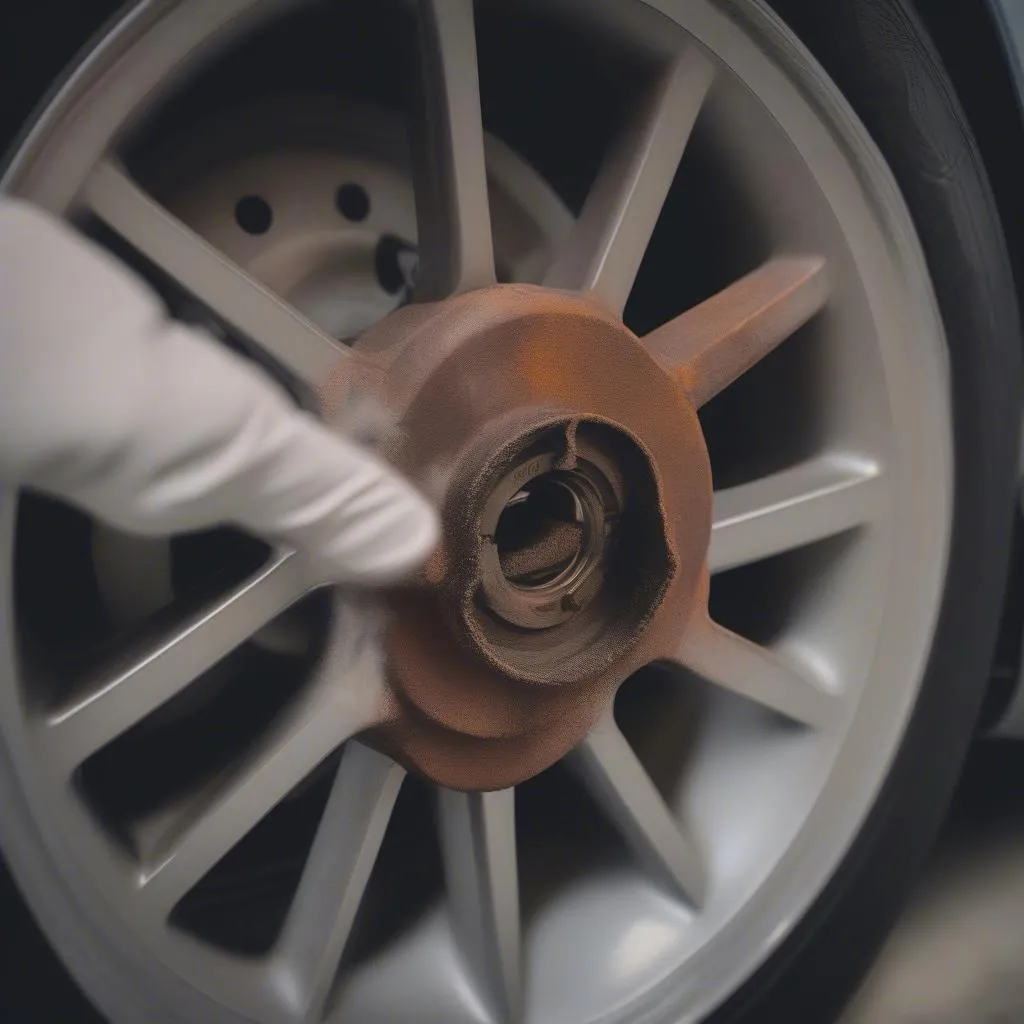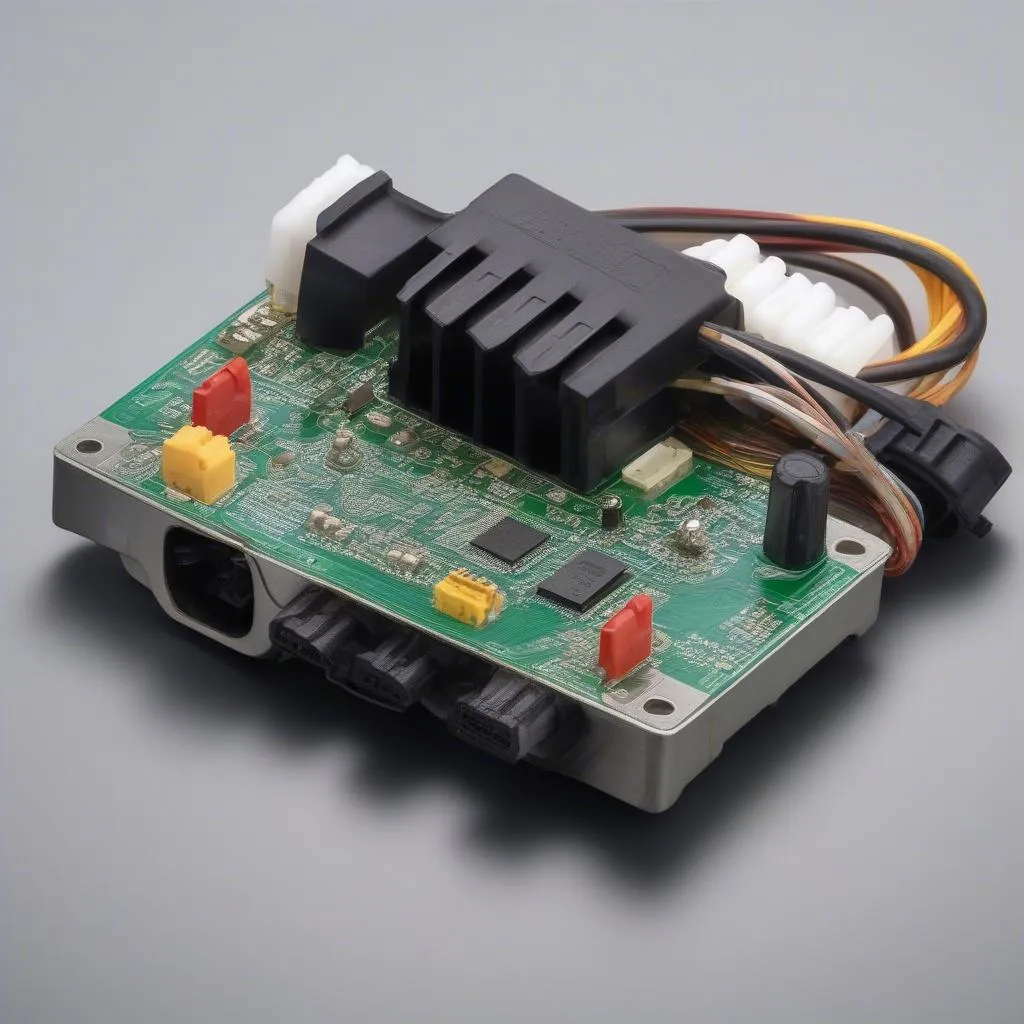“My ABS light came on this morning, and now I’m freaking out! Is it safe to drive? What could be wrong?”
Sound familiar? Don’t worry, you’re not alone. Experiencing issues with your Anti-lock Brake System (ABS) can be unsettling. Let’s demystify these problems and equip you with the knowledge to tackle them head-on.
Understanding the Importance of Your ABS
Before we dive into the nitty-gritty of ABS problems, let’s understand why this system is crucial. Imagine driving down a rain-soaked California highway. Suddenly, a deer jumps in front of you! You slam on the brakes, but your car starts to skid uncontrollably. This is where ABS steps in. By rapidly pumping the brakes, it prevents wheel lockup, allowing you to steer clear of danger. A functioning ABS is paramount for safety, especially in emergency situations.
Decoding the “Anti-Lock Brake System Problem”
From a mechanic’s perspective, “Anti-lock Brake System Problem” is a broad term. It’s like saying you have a headache – there are numerous potential causes. It could be anything from a faulty wheel speed sensor to a malfunctioning ABS module.
Technically speaking, the ABS works in conjunction with your car’s Electronic Stability Control (ESC) to monitor wheel speed and modulate brake pressure. Any hiccup in this intricate system can trigger the dreaded ABS warning light.
Economically, ignoring an ABS problem can lead to costlier repairs down the line. Remember, early detection is key to saving money and ensuring your safety.
Common Causes of ABS Problems
Several culprits can trigger an “Anti-lock Brake System Problem” warning:
1. Faulty Wheel Speed Sensors
These sensors, often found near the wheel hub assembly, are the eyes of your ABS. They constantly monitor wheel rotation speed. A damaged or dirty sensor can send incorrect signals to the ABS control module, leading to malfunctions.
2. ABS Module Issues
The ABS module is the brain of the operation. It receives data from the wheel speed sensors and decides when and how to apply brake pressure. A faulty module can lead to erratic ABS behavior or complete system failure.
3. Low Brake Fluid
Brake fluid is the lifeblood of your braking system, including the ABS. Low fluid levels, often due to leaks, can hamper the ABS’s ability to function correctly.
4. Electrical Problems
Like any electronically controlled system, the ABS relies on a network of wires and connectors. Corrosion, loose connections, or damaged wiring can disrupt communication within the system, triggering problems.
Symptoms of a Failing ABS
While the illuminated ABS warning light is the most obvious sign, other symptoms can indicate a problem:
- ABS Light On, But Brakes Work Fine: Don’t be fooled! This could indicate an intermittent issue or a problem in its early stages.
- Grinding Noise When Braking: This might point to a worn-out ABS pump or motor.
- Pulsating Brake Pedal: While some pulsation is normal during ABS activation, excessive or continuous pulsing can signal a problem.
- Wheels Locking Up: If your wheels lock up during hard braking, your ABS might not be engaging correctly.
Troubleshooting and Solutions
If you suspect an ABS problem, don’t panic. Here are some steps you can take:
-
Check Your Brake Fluid: Ensure the fluid level in the reservoir is within the recommended range. Top it off if needed.
-
Visual Inspection: Examine the visible ABS components, like the wires and connectors near the wheels, for any signs of damage or corrosion.
-
Professional Diagnosis: If the problem persists, it’s crucial to have your vehicle diagnosed by a qualified mechanic. They can use a specialized ABS scanner for European cars to pinpoint the exact issue.
-
Addressing the Root Cause: The solution depends on the specific problem. It could involve replacing a faulty wheel speed sensor, repairing wiring issues, or even replacing the entire ABS module.
Don’t Ignore the Warning Signs!
Remember that scene on the California highway? A well-functioning ABS can be the difference between a near miss and a serious accident. Regular maintenance, prompt attention to warning signs, and professional diagnosis are key to keeping your ABS in top shape and ensuring your safety on the road.
Frequently Asked Questions about ABS Problems:
- Can I drive with the ABS light on? While you might still have regular braking functionality, driving with a malfunctioning ABS is risky, especially in slippery conditions. It’s best to get it checked ASAP.
- How much does it cost to fix an ABS problem? Costs can vary widely depending on the issue, car make and model, and labor rates. A simple sensor replacement might cost a few hundred dollars, while a new ABS module can set you back over a thousand.
- Can I fix an ABS problem myself? While some basic checks and repairs are possible for experienced DIYers, it’s generally recommended to leave ABS-related work to professionals.
 ABS Wheel Speed Sensor
ABS Wheel Speed Sensor
 Car ABS Control Module
Car ABS Control Module
Need Expert Help?
Facing persistent ABS issues? Don’t hesitate to reach out! Our team of auto repair specialists is just a message away. Contact us via WhatsApp at +84767531508 for expert advice and assistance with all your diagnostic tool needs. We’re here to help you get back on the road safely.
Keep Exploring
Want to learn more about ABS systems and car diagnostics? Check out these related articles:
- ABS Scanners: Your Guide to Choosing the Right Tool
- Why is My Anti-Lock Light On?
- ABS and Brake Light On, But Brakes Work Fine
- ABS Scan Tool with Live Data
- ABS System Diagnosis
Let us know in the comments below if you have any questions or experiences to share about ABS problems. And don’t forget to share this article with your fellow car enthusiasts!